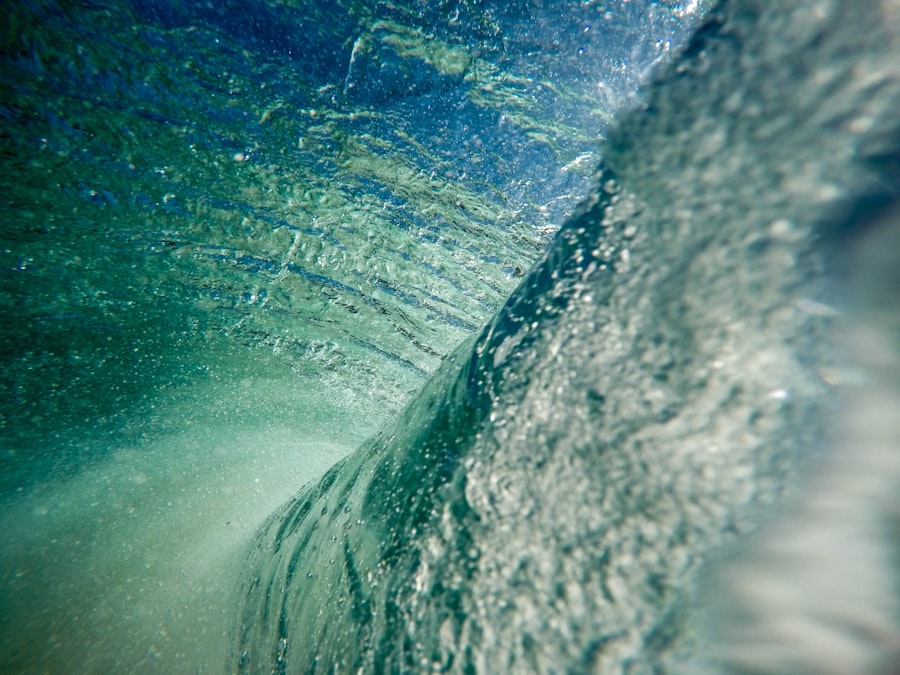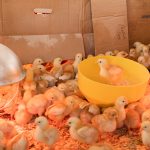Providing warm water for chickens during winter is crucial for their health and well-being. Chickens require water for hydration, body temperature regulation, and digestion. Cold water can lower a chicken’s body temperature, causing stress and potential health problems.
When water is too cold, chickens may reduce their intake, leading to dehydration and decreased egg production. Warm water helps chickens maintain their body heat, which is especially important in extremely cold weather. By drinking warm water, chickens can slightly raise their internal temperature, providing a source of warmth from within.
This contributes to their overall comfort and helps maintain their productivity during winter months. Ensuring access to warm water throughout the day is essential for chickens’ health, comfort, and egg production during cold weather. By implementing this practice, chicken owners can support their flock’s well-being and maintain optimal productivity throughout the winter season.
Table of Contents
- 1 Methods for Keeping Water Warm
- 2 Using Insulation to Retain Heat
- 3 Heating Devices for Water
- 4 Monitoring Water Temperature
- 5 Tips for Cold Weather Water Maintenance
- 6 Ensuring Comfort for Chickens in Winter
- 7 FAQs
- 7.1 What is the best way to keep water warm for chickens?
- 7.2 What temperature should the water be for chickens?
- 7.3 What are some alternative methods to keep water warm for chickens?
- 7.4 Why is it important to keep water warm for chickens?
- 7.5 How can I prevent the water from freezing in the winter?
Key Takeaways
- Warm water is important for chickens in winter to prevent dehydration and maintain overall health
- Methods for keeping water warm include using heated waterers, adding warm water, and using insulated containers
- Insulation can help retain heat in water containers, such as using foam or rubber insulating sleeves
- Heating devices like heated bases and heated waterers can be used to keep water from freezing
- Monitoring water temperature is crucial to ensure it stays within a safe range for chickens
- In cold weather, it’s important to regularly check and maintain water to prevent freezing and ensure chickens have access to warm water
- Ensuring comfort for chickens in winter is essential for their well-being and productivity
Methods for Keeping Water Warm
Heated Waterers and Base Plates
One effective method for keeping water warm for chickens is to use heated waterers specifically designed for poultry. These waterers are equipped with built-in heating elements that maintain a constant temperature, preventing the water from freezing. Another option is to use heated base plates or pet bowl inserts placed underneath the waterers to keep the water from freezing. These devices are designed for safe outdoor use and can effectively prevent water from turning into ice in cold temperatures.
Insulation and Retaining Heat
Using insulated waterers or wrapping insulation around the waterers is another method for keeping water warm. Insulation helps prevent the water from freezing quickly and maintains a warmer temperature for a longer period. This approach can be an effective way to ensure chickens have access to warm water throughout the day.
Alternative Methods
Some chicken keepers use heated rocks or bricks placed in the water to help keep it warm. These methods can be effective in preventing water from freezing and providing chickens with a steady supply of warm water.
Choosing the Right Method
Ultimately, there are various methods available for keeping water warm for chickens, and the right approach will depend on the specific needs and setup of your chicken coop. By considering the different options, you can choose the best method for your flock and ensure they stay healthy and happy throughout the winter months.
Using Insulation to Retain Heat

Insulation is a key component in retaining heat and preventing water from freezing in cold weather. There are several ways to use insulation to keep water warm for chickens during the winter months. One effective method is to wrap insulation around the outside of the waterers.
This can be done using materials such as foam insulation, bubble wrap, or even old towels or blankets. By insulating the exterior of the waterers, you can help retain the heat from the water and prevent it from freezing as quickly in cold temperatures. Another method is to use insulated waterers specifically designed to retain heat.
These waterers are equipped with double-walled construction and insulation materials that help keep the water at a warmer temperature for longer periods. Additionally, some chicken keepers place their waterers inside insulated boxes or shelters to provide an extra layer of protection from the cold. This can help maintain a warmer environment around the waterers and prevent them from freezing in extremely low temperatures.
Overall, using insulation to retain heat is an effective way to ensure that chickens have access to warm water throughout the winter months.
Heating Devices for Water
There are various heating devices available that can be used to keep water warm for chickens during the winter months. One popular option is heated poultry waterers, which are specifically designed with built-in heating elements to prevent water from freezing. These heated waterers come in different sizes and styles, including plastic or metal options, and are designed to withstand outdoor conditions.
Another option is heated base plates or pet bowl inserts that can be placed underneath the waterers to provide consistent warmth and prevent freezing. Additionally, some chicken keepers use submersible aquarium heaters in their waterers to keep the water at a suitable temperature. These heaters are designed to be safe for use in water and can effectively prevent freezing in cold weather.
Another heating device option is heated rocks or bricks that can be placed in the water to provide warmth and prevent freezing. These heating devices are designed to be safe for use with poultry and can help ensure that chickens have access to warm water throughout the winter months. Overall, there are various heating devices available that can effectively keep water warm for chickens, and choosing the right one will depend on the specific needs and setup of your chicken coop.
Monitoring Water Temperature
Monitoring the temperature of the water is essential for ensuring that chickens have access to warm water during the winter months. One way to monitor the water temperature is by using a thermometer specifically designed for poultry waterers. These thermometers are designed to be placed directly in the water and can provide an accurate reading of the temperature.
Additionally, some heated waterers come with built-in thermostats that automatically regulate the temperature of the water, ensuring that it stays at a suitable level for chickens to drink. Another method for monitoring water temperature is by regularly checking the water throughout the day. By physically feeling the temperature of the water with your hand, you can determine if it is too cold and needs attention.
Additionally, observing the behavior of the chickens can also provide insight into whether the water is at a suitable temperature. If chickens are avoiding drinking or showing signs of discomfort, it may indicate that the water is too cold and needs to be warmed up. Overall, monitoring the temperature of the water is crucial for ensuring that chickens have access to warm water throughout the winter months.
Tips for Cold Weather Water Maintenance

Regular Water Checks
Regularly checking the water throughout the day is crucial to ensure that chickens have access to liquid water at all times. Remove any ice that may have formed on the surface by breaking it up, allowing your chickens to drink comfortably.
Temperature Control
Adding hot or warm water to the existing water can help raise its temperature and prevent it from freezing as quickly. This simple trick can make a significant difference in maintaining warm water for your chickens.
Sheltered Placement and Insulation
Place the waterers in a sheltered area within the chicken coop or run to protect them from direct wind and extreme cold. You can also use heated bases or pet bowl inserts underneath the waterers to provide consistent warmth and prevent freezing in cold temperatures.
By implementing these tips, you can ensure that your chickens have access to warm water throughout the winter months, keeping them healthy and happy.
Ensuring Comfort for Chickens in Winter
In conclusion, providing warm water for chickens is essential for maintaining their health, comfort, and productivity during the winter months. There are various methods available for keeping water warm, including using heating devices, insulation, and monitoring the temperature regularly. By implementing these strategies and tips for cold weather water maintenance, you can ensure that chickens have access to warm water at all times, ultimately leading to happier and healthier birds.
Taking proactive measures to keep water warm for chickens during cold weather will not only benefit their well-being but also contribute to better egg production and overall success in poultry keeping during the winter months. By prioritizing their comfort and health, you can create a more enjoyable environment for your chickens even in the coldest of winters.
If you’re looking for ways to keep water warm for your chickens during the colder months, you may want to consider converting a shed into a chicken coop. This article from Poultry Wizard provides helpful tips and guidance on how to create a warm and comfortable environment for your feathered friends. Check it out here.
FAQs
What is the best way to keep water warm for chickens?
The best way to keep water warm for chickens is to use a heated waterer specifically designed for poultry. These waterers are equipped with a heating element to prevent the water from freezing in cold temperatures.
What temperature should the water be for chickens?
The water for chickens should be kept at a temperature between 45-65 degrees Fahrenheit. It is important to avoid extremely cold or hot water as it can affect the health of the chickens.
What are some alternative methods to keep water warm for chickens?
Some alternative methods to keep water warm for chickens include using heated water bowls, adding a heated base to a regular waterer, or using insulated water containers. It is important to ensure that any alternative method used is safe for the chickens and does not pose a fire hazard.
Why is it important to keep water warm for chickens?
It is important to keep water warm for chickens, especially in cold weather, to prevent the water from freezing. Chickens need access to clean and unfrozen water at all times to stay hydrated and maintain their health.
How can I prevent the water from freezing in the winter?
To prevent the water from freezing in the winter, you can use a heated waterer, insulate the water container, place it in a sheltered area, or use a heated base. It is important to regularly check the water to ensure it remains unfrozen.
Meet Walter, the feathered-friend fanatic of Florida! Nestled in the sunshine state, Walter struts through life with his feathered companions, clucking his way to happiness. With a coop that’s fancier than a five-star hotel, he’s the Don Juan of the chicken world. When he’s not teaching his hens to do the cha-cha, you’ll find him in a heated debate with his prized rooster, Sir Clucks-a-Lot. Walter’s poultry passion is no yolk; he’s the sunny-side-up guy you never knew you needed in your flock of friends!







